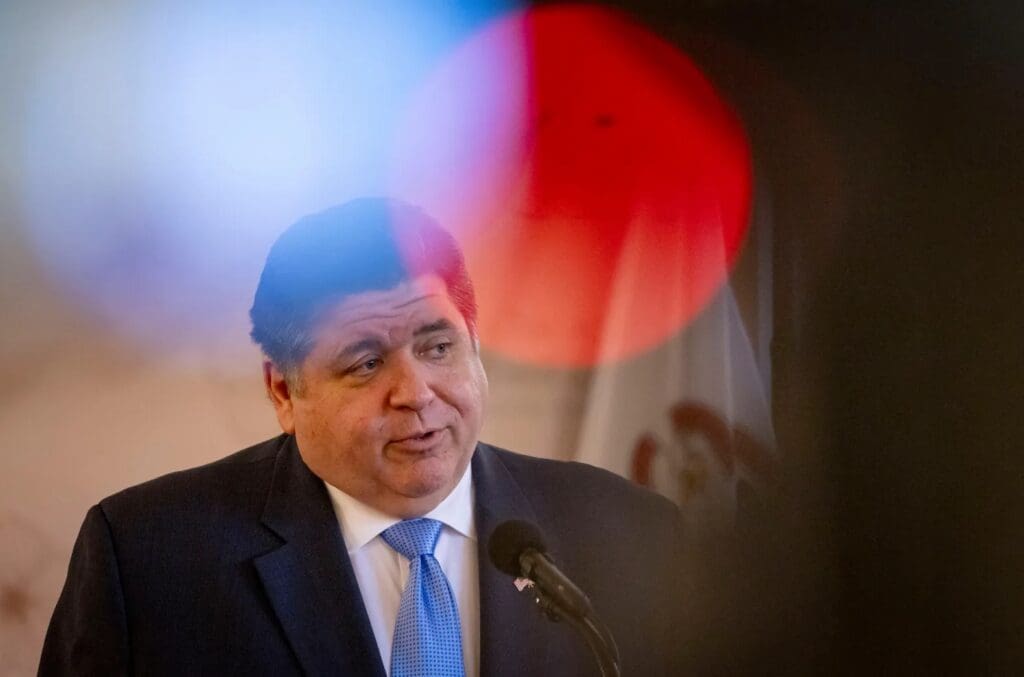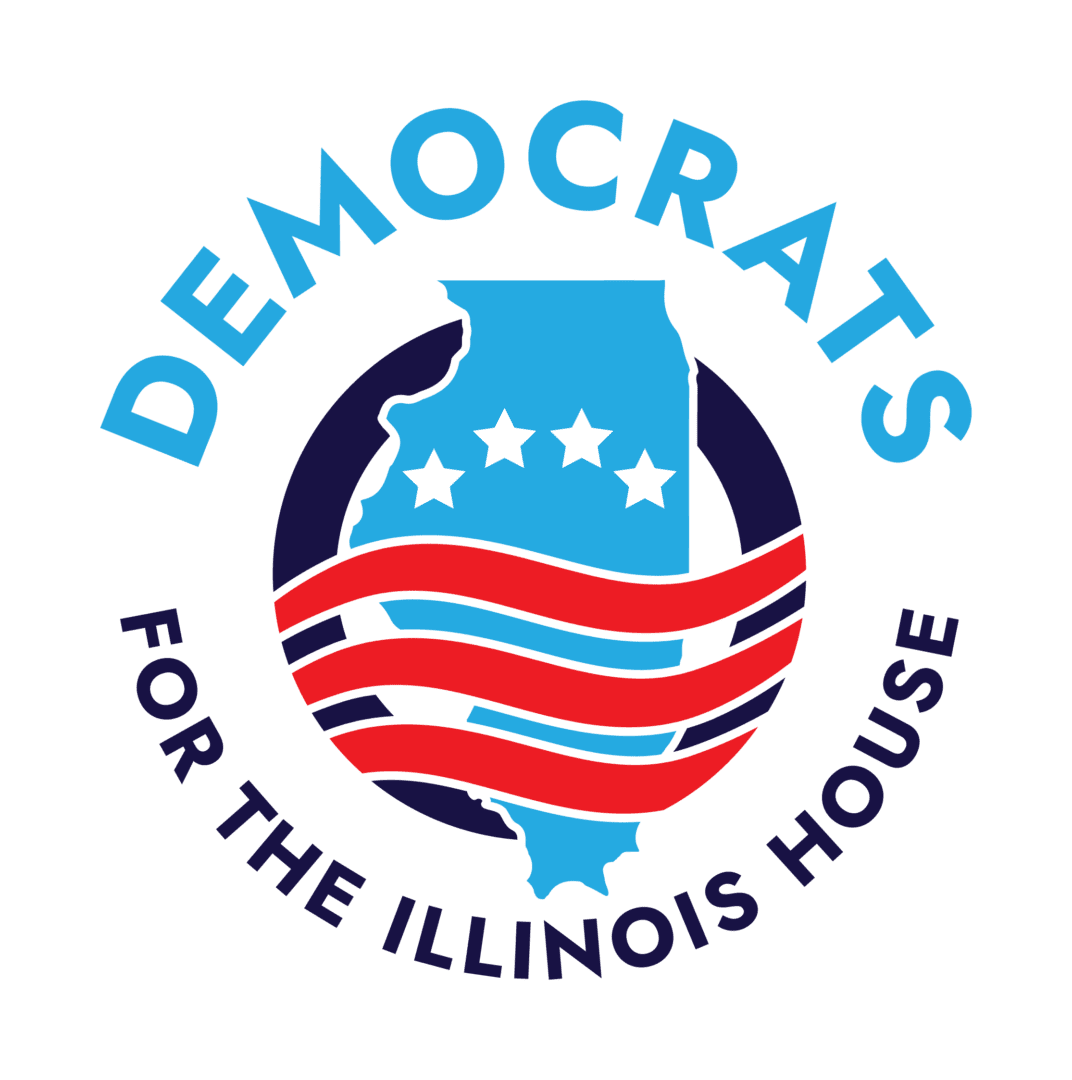
Plan for hybrid elected Chicago school board now in Gov. J.B. Pritzker’s hands
SPRINGFIELD — Legislation that spells out the inaugural electoral process for Chicago’s school board is in Gov. J.B. Pritzker’s hands after the Illinois House on Thursday approved a measure that would see half of the 20-member board elected in November and the other half appointed by the mayor, with the entire panel not decided on by voters for another two years.
In a 75-31 vote, the House passed the same hybrid model of the elected board that it pushed through the chamber during the fall veto session. That proposal stalled because the Senate moved ahead on its own plan to elect the entire board in the first round of balloting.
Senate President Don Harmon of Oak Park acquiesced to the House plan after receiving a letter in January from Chicago Mayor Brandon Johnson urging him to push through the hybrid model instead. The model, also supported by the Chicago Teachers Union, was passed by the Senate on Tuesday.
A few hours before Thursday’s house vote, Pritzker, who signed the measure in 2021 to create Chicago’s elected school board, indicated his support for moving forward whether through an initial hybrid model or otherwise.
“Either way, I think that the city of Chicago is doing the right thing,” Pritzker said at an unrelated event in Decatur. “The Chicago Public Schools will be better led by people who are representative of the people and not just appointed by the mayor of the city of Chicago.”
During House debate Thursday afternoon, state Rep. Ann Williams, a Chicago Democrat and a sponsor for the bill, acknowledged that the proposal was “not perfect” but said it’s “a workable, fair, equitable and responsible way to give a voice and vote to every single Chicagoan right out of the gate.”
Lawmakers were up against a self-imposed April 1 deadline to implement an electoral process for the first election, which now is just eight months away.
“If this debate were happening a year ago, I’d still be pushing for a fully elected board. But now, with the first election just months away, CPS needs time to prepare and needs time to plan,” Williams said. “As someone whose district lies fully in Chicago, it feels irresponsible to completely turn over the governance of Chicago Public Schools in a matter of months without adequate time to plan.”
“If we do nothing, this bill would likely get tied up in the courts and the status quo of an appointed board will remain,” Williams said. “But that doesn’t get any closer to bringing democracy to the Chicago Public Schools.”
House Speaker Emanuel “Chris” Welch said Chicago parents have not been able to seek help from school board members they elected, unlike parents in the suburbs and the rest of the state who have long had elected boards.
“We are making history here today,” said Welch, a Hillside Democrat who once was an elected school board member in the near west suburbs. “I can only imagine how much in pain Chicago parents (are) to be shut out of their children’s education, to not have a neighbor that they can turn to when they have a question or an opinion about how their schools are run.”
Under the legislation, Chicago would be divided into 10 districts, each of which would elect a school board member in the November general election. Johnson would appoint 10 additional members, one from each district. Johnson would also be required to appoint a school board president. All 21 members, including the board president, would serve two-year terms.
Each of the 10 districts would be divided into two subdistricts, which in 2026 would hold elections for a fully elected school board, which would be seated in January 2027. Beginning with the 2032 general election, board seats would be up for election three times over a 10-year period, two of the times for four-year terms and then for a two-year term.
The bill also enforces a district map that lawmakers from both chambers have previously agreed on. It would create seven majority-Black districts, six majority-Latino districts, five majority-white districts and two in which no group has a majority. The bill also addresses ethical questions involving potential conflicts of interest among board members “considering any contract, work, or business of the district,” according to the bill.
The CTU, in a statement urging Pritzker to sign the measure, noted that candidates for the board can begin circulating petitions on March 26.
Potential candidates for the November election would have to collect at least 1,000 signatures from voters, according to the bill.
The proposal would give Johnson, a former CTU organizer, control over appointing half of the board members, plus the president, all of whom would continue to serve through most of the remainder of Johnson’s term.
Opponents of the hybrid model raised concerns that Johnson and the CTU would have too much influence over the board.
“Having a Chicago Board of Education so heavily influenced by the CTU presents an apparent conflict of interest, as the Board of Education is responsible for setting school policies and negotiating contracts,” said Valerie Leonard, co-founder of the group Illinois African Americans for Equitable Redistricting, said in a statement on Thursday.
The CTU’s power was also a talking point for Republicans objecting to the bill.
“I believe that instead of looking at what we should be doing for the people, for the students, … the Chicago Teachers Union’s having far too much say,” said Republican state Rep. Dan Ugaste of Geneva, who voted against the bill.
Ugaste said every board seat should be up for election in November.
“Don’t quite understand what the difference is between holding elections in 10 parts of the city but not the full 20 in which the city’s divided into for these various districts,” said Ugaste, whose west suburban district does not include Chicago. “If we’re capable of doing it for 10, we should be capable of doing it for 20.”
State Rep. Jaime Andrade, a Chicago Democrat, voted for the bill but raised concerns that competitive selective enrollment schools, like the one that recently accepted his daughter, might be affected if the city did not immediately shift to a fully elected board. Chicago’s school board passed a resolution late last year to prioritize neighborhood schools over a five-year period and acknowledging that selective enrollment schools have exacerbated inequities in the education system.
“I ask the governor, as my governor, to not sign the bill until we get a response:
What (are) their intentions?” said Andrade, referring to the CPS’ plan for
selective enrollment schools. “Because as a parent, we deserve to know what (are) their intentions for the next few years.”
